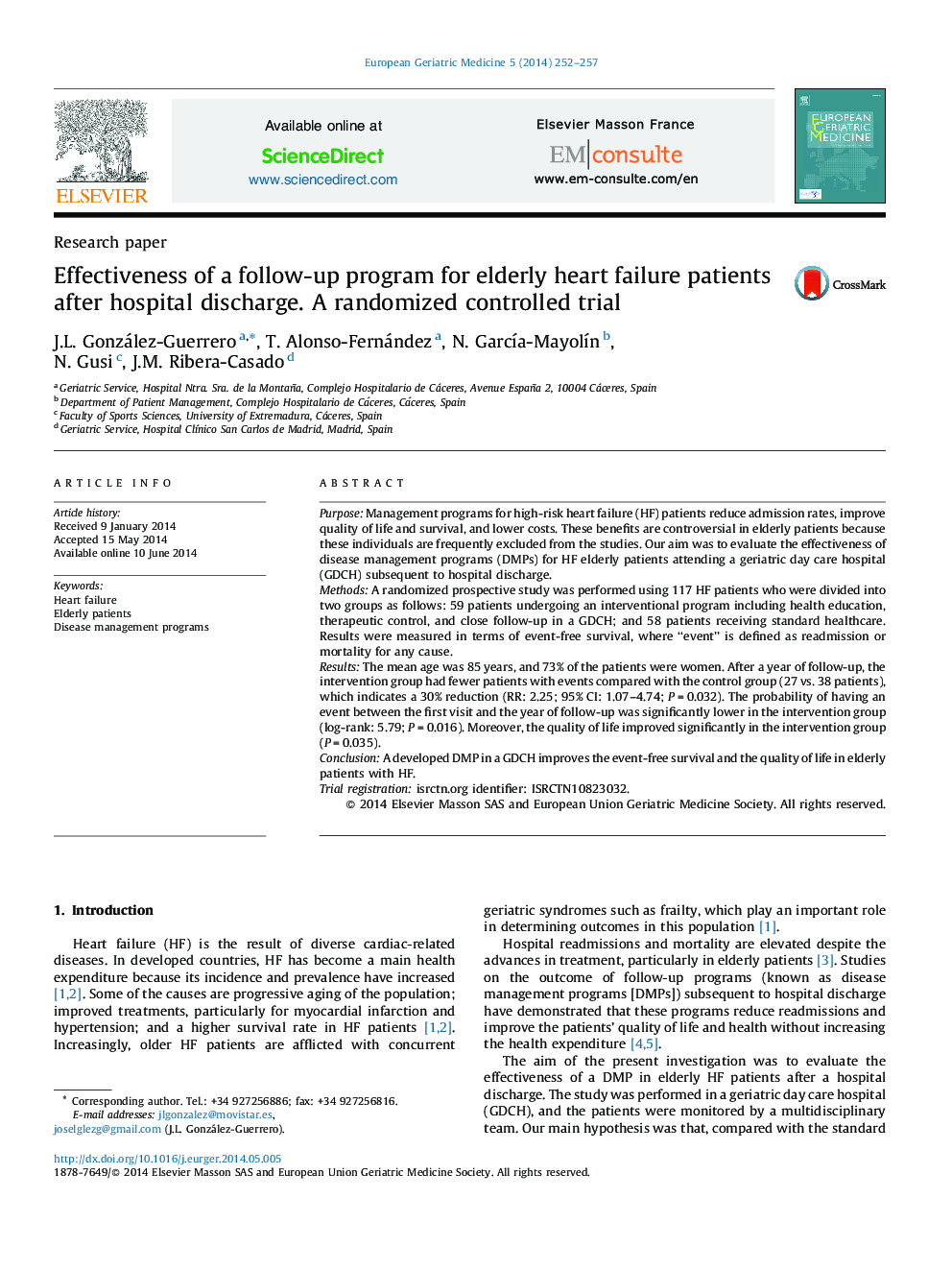| Article ID | Journal | Published Year | Pages | File Type |
|---|---|---|---|---|
| 3323889 | European Geriatric Medicine | 2014 | 6 Pages |
PurposeManagement programs for high-risk heart failure (HF) patients reduce admission rates, improve quality of life and survival, and lower costs. These benefits are controversial in elderly patients because these individuals are frequently excluded from the studies. Our aim was to evaluate the effectiveness of disease management programs (DMPs) for HF elderly patients attending a geriatric day care hospital (GDCH) subsequent to hospital discharge.MethodsA randomized prospective study was performed using 117 HF patients who were divided into two groups as follows: 59 patients undergoing an interventional program including health education, therapeutic control, and close follow-up in a GDCH; and 58 patients receiving standard healthcare. Results were measured in terms of event-free survival, where “event” is defined as readmission or mortality for any cause.ResultsThe mean age was 85 years, and 73% of the patients were women. After a year of follow-up, the intervention group had fewer patients with events compared with the control group (27 vs. 38 patients), which indicates a 30% reduction (RR: 2.25; 95% CI: 1.07–4.74; P = 0.032). The probability of having an event between the first visit and the year of follow-up was significantly lower in the intervention group (log-rank: 5.79; P = 0.016). Moreover, the quality of life improved significantly in the intervention group (P = 0.035).ConclusionA developed DMP in a GDCH improves the event-free survival and the quality of life in elderly patients with HF.Trial registrationisrctn.org identifier: ISRCTN10823032.
